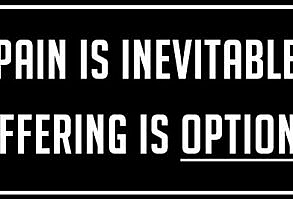
As a passionate advocate of custom tooling in the world of software development, I firmly believe that if you can build tools to make your work easier, you should go ahead and spend the time to do it. The dividends of investing in custom tools are immense and far-reaching. In this article, we’ll delve into the importance of building custom tools as a developer and explore how they can transform your work into a more efficient and rewarding endeavor.
Custom tools empower you as a developer to streamline your workflows, increase your productivity, and conquer complex tasks with ease, all while ensuring long-term benefits that are well worth the initial investment.
What are custom tools?
Firstly, custom tools are basically our sidekicks in the coding world. They’re tailor-made applications, scripts, or software solutions that we build to make our lives easier as developers. It’s like having a personal assistant that just gets you. We’re talking automation scripts that handle the boring, repetitive tasks, user-friendly graphical interfaces that turn complex problems into a walk in the park, plugins and extensions that supercharge our IDEs, data transformation tools that make sense of the mountains of data we deal with, and custom testing and debugging utilities that fit our projects like a glove.
They aren’t solely focused on making business processes more efficient; instead, their primary purpose is to optimize the work you do.
They are a reflection of the developer’s ingenuity, problem-solving skills, and deep understanding of the project’s unique demands.
Efficiency and Productivity
Now, why are these tools so darn great? They take our productivity to new heights, help us tackle even the most complex tasks with ease, and guarantee we’re set up for success in the long run. Plus, they’re just plain fun to build and use.
Imagine you’re a developer in a project and part of your daily routine is to convert huge datasets from one format to another, which takes a few minutes each time you do it, and also, you do it, say, 10 times a day. With a custom tool, that because way easier! You’ve got your handy dandy data conversion tool that’s been fine-tuned to handle the specific formats you work with. It automates the whole process and even runs in the background while you focus on the good stuff. The result? You’ve just upped your efficiency and productivity big time.
Addressing unique challenges
Every project and development team faces unique challenges. These challenges may range from complex data processing to intricate debugging scenarios. Custom tools allow developers to design solutions specifically attuned to the demands of their projects. By creating tools tailored to handle specific issues or scenarios, developers can eliminate bottlenecks and roadblocks more effectively.
For example, in your work, you may encounter complex challenges, such as managing inventory updates from multiple suppliers with varying data formats. By creating a custom data integration tool that understands each supplier’s format and automates the data import process, you can efficiently address this unique challenge, reducing errors and improving data accuracy.
Streamlining workflows
And let’s not forget about streamlining workflows. Custom tools are like the missing puzzle piece that fits perfectly into our development stacks. They automate those tedious steps, help us maintain top-notch coding standards, and provide intuitive interfaces that let us focus on the creative aspects of our work.
In a DevOps context, for example, a custom tool could be integrated into the CI/CD (Continuous Integration/Continuous Deployment) pipeline to automate the build, packaging, and deployment of applications and libraries. This ensures that code changes are automatically tested, built, and deployed, saving us heaps of time and maintaining consistency across development, testing, and production environments.
Skills Development
Building custom tools isn’t just about solving immediate problems; it’s also about growing as professionals. We get to hone our problem-solving skills, dive deep into programming languages and frameworks, and let our creative flags fly. It’s a great way to flex our coding muscles and learn something new.
Don’t be afraid to explore languages and frameworks you’ve never before worked with, to bring your tool to life. Diving deep into programming languages and frameworks, especially those we’re not super familiar with, is like opening a treasure trove of possibilities. It’s like, “Woah, I didn’t know this language could do that!” It’s a fantastic way to expand our toolkit and see which languages vibe with our way of solving problems. Plus, it gives us first-hand insights into the strengths and weaknesses of different languages. We might find that some languages are like our best friends for certain types of solutions, while others are more like that acquaintance we only call up for specific tasks.
It’s a super fun way to flex our coding muscles and learn something new, all while creating our personalized toolbox.
Cost savings
And, last, but not least, let’s talk about the financial side of things. While building custom tools does require a time investment upfront, the long-term benefits are well worth it. We can kiss those annoying licensing fees goodbye, cut down on the time we spend on manual tasks, and avoid those costly errors that can come from using inadequate tools.
Conclusion
In conclusion, custom tools are like our secret weapons in the coding world. They empower us to work smarter, tackle any challenge that comes our way, and grow as professionals. Plus, they save us money in the long run. So, let’s embrace the power of custom tools and take our development game to new heights of efficiency and excellence!








